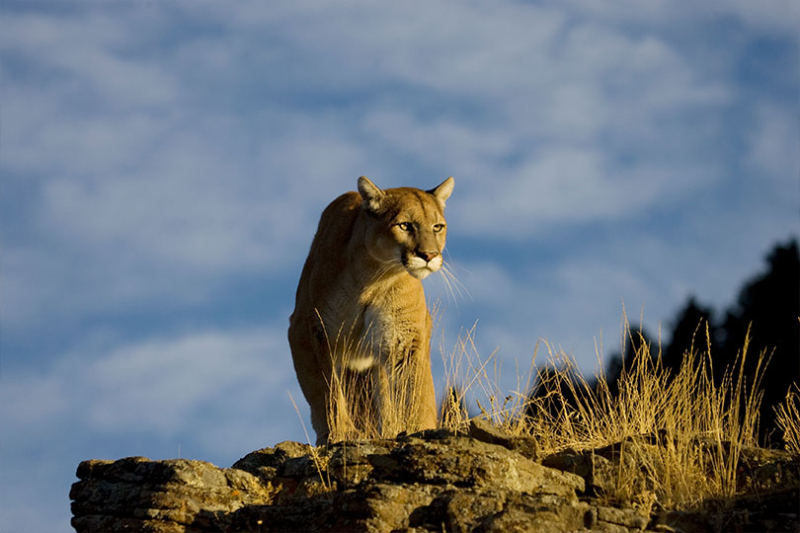By Julie Tomascik
Editor
Proposed mountain lion rules jeopardize conservation efforts, concern landowners and endanger livestock, the state’s largest general farm and ranch organization said in comments submitted to Texas Parks and Wildlife Department (TPWD) this month.
TPWD is considering a proposal that would prohibit canned hunting and implement trapping standards for mountain lions.
The proposal comes after a Mountain Lion Stakeholder Group issued a final report on the need for more research, improved population data and banning canned hunts. But a consensus wasn’t reached by stakeholders on the mandate to check traps.
Texas Farm Bureau (TFB) comments noted the rules are unnecessary, inhibit landowners
and inconsistent with the findings of TPWD’s Mountain Lion Stakeholder Group.
“Our members have expressed serious concerns regarding this rule and the wide-ranging impacts that it could have on predator control statewide,” TFB said.
TPWD proposed a regulation requiring trappers to ensure that mountain lions are not kept alive in traps or snares for more than 36 hours.
As proposed, the mandated 36-hour trap checks would negatively impact effective predator control efforts and greatly increase landowner costs. TFB noted “this will have a particularly devastating impact on ranches in West Texas where mountain lions are much more prevalent.”
About 95% of Texas is privately owned. TFB said effective conservation efforts for mountain lions will rely on the cooperation of private landowners, farmers and ranchers, but TPWD’s proposed rule will likely deter cooperative conservation efforts with the agency rather than promote them.
An alternative strategy to mandatory trap checks would be the development of best management practices (BMPs) for mountain lions and voluntary implementation would promote coordination and cooperation between TPWD, ranchers and trappers.
“Incorporating this voluntary strategy and BMPs into a future Mountain Lion Management Plan would further bolster conservation and data collection efforts, highlighted as priorities in the final report,” TFB said.
Studies conducted by the Borderlands Research Institute and others indicate the mountain lion population in West Texas has remained stable and healthy, despite trapping in the region to prevent livestock depredation.
TFB recommends the agency develop BMPs that would underscore the ethics of lion trapping, detail ways to avoid incidental captures of black bears and provide resources for trappers to increase their professionalism and efficiency. TFB also encourages TPWD to work with landowners and the Texas Trappers and Fur Hunters Association in developing the BMPs.
“Our members are more than willing to serve in advisory capacities as TPWD considers developing a management plan for mountain lions,” TFB said.
The Texas Parks and Wildlife Commission will consider the proposed mountain lion rules during its meeting at 9 a.m. May 23 in Austin.


Leave A Comment